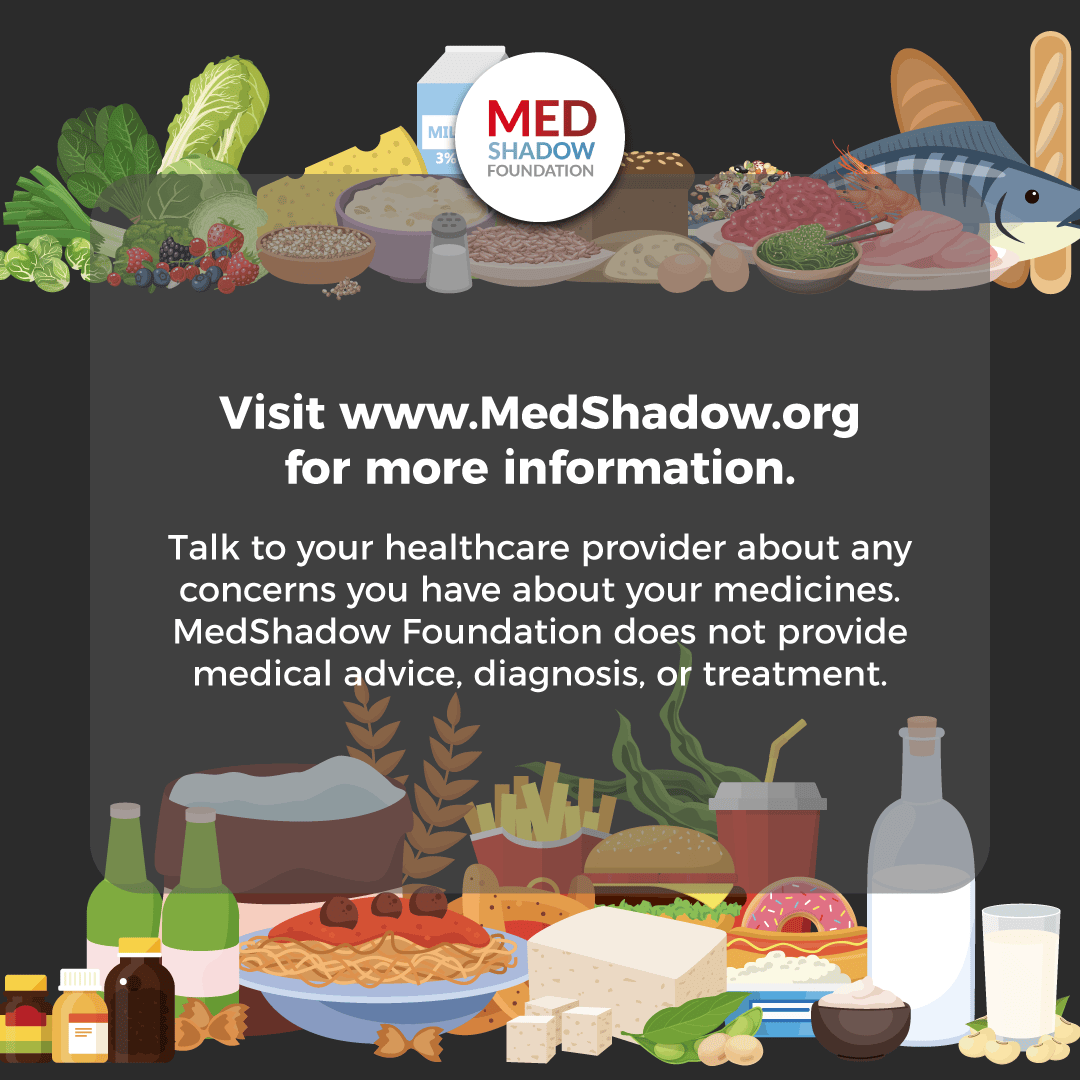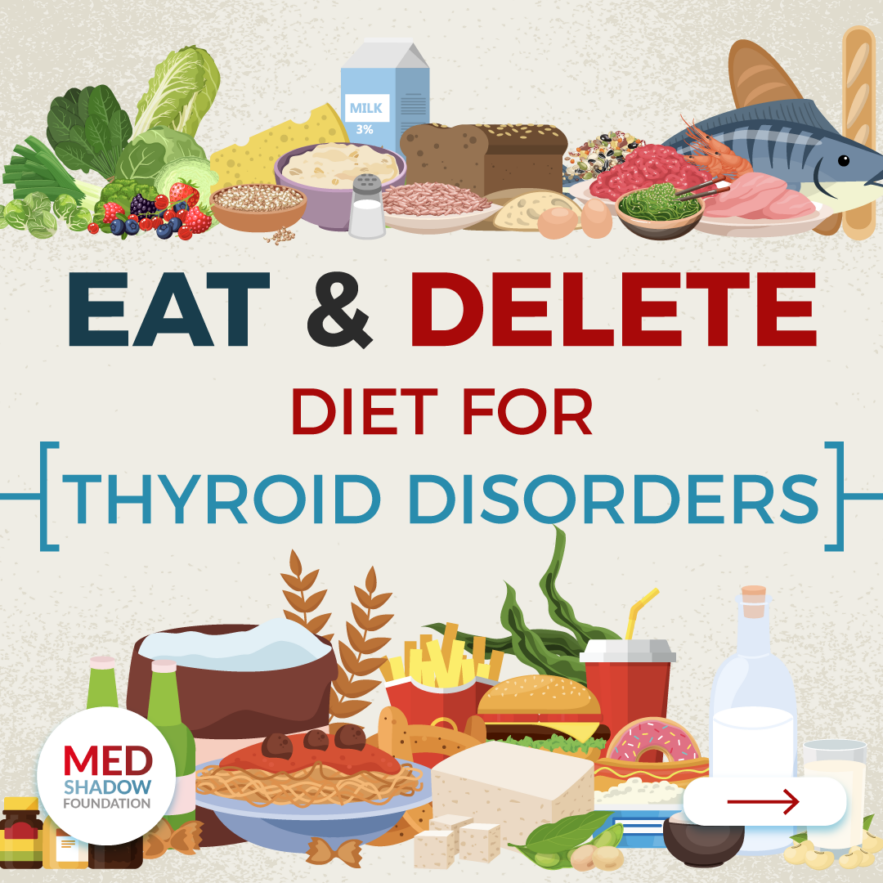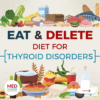Do you know how to eat for a healthy thyroid? Those with a thyroid condition know it can be tough to find a nutritional balance. Nutrition for hypothyroidism isn’t easy, but with a few handy tips you can improve your condition greatly. Here are some food tips for those with hypothyroidism.
You may have already been diagnosed. Or, perhaps, you’ve just noticed some of the symptoms. From constipation and high cholesterol, to fatigue, weight gain, depression, and feeling cold, there are a variety of symptoms that may key you into it.
Hypothyroidism is a condition in which the thyroid gland does not produce enough of the crucial hormones that direct the body’s functions. While nearly five percent of the population suffers from the disorder, there are many ways that the condition may display.
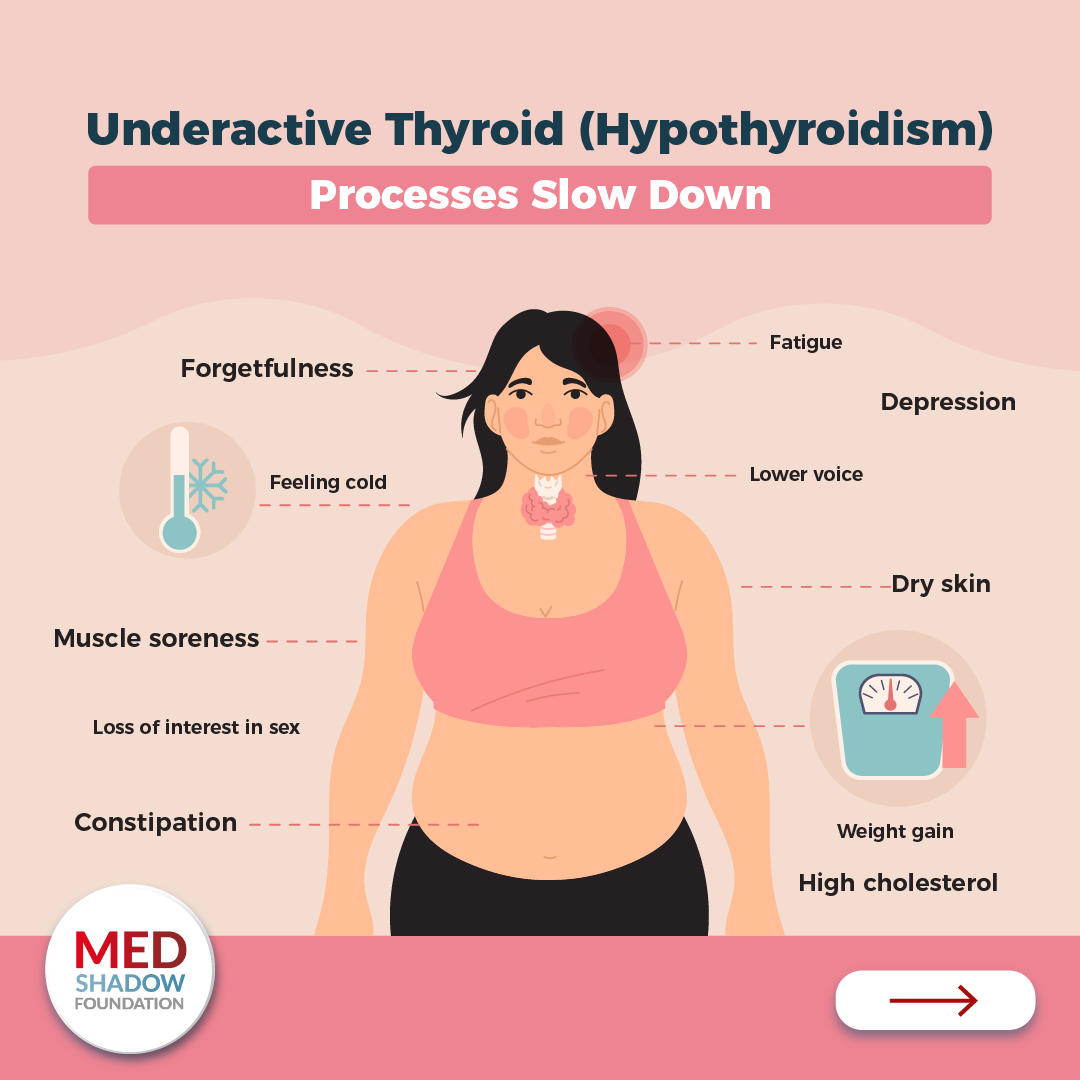
“The thyroid is a hormone gland,” explains MedShadow Foundation Medical Advisory Board Member Alison Acerra, MS, RDN. “It affects nearly every organ of the body, from how we breath, our heart rate, weight, mood.”
While some suffer from hyperthyroidism, in which your body produces too much hormone, those with hypothyroidism have a gland that does not produce enough hormones to meet the body’s needs.
Some with the condition of hypothyroidism can have it as a result of Hashimoto’s disease. This is an autoimmune disease that causes the immune system to attack the thyroid. Autoimmune disorders can also occur in conjunction with one another, so if you already are aware of a diagnosis such as lupus, there is a chance your additional symptoms could be as a result of hypothyroidism.
To determine a hypothyroid diagnosis, you would need to see your healthcare professional and ask for a blood test, which measures the levels of thyroid hormones in your blood. Once diagnosed, and depending on your levels, your doctor will likely prescribe Synthroid (levothyroxine).
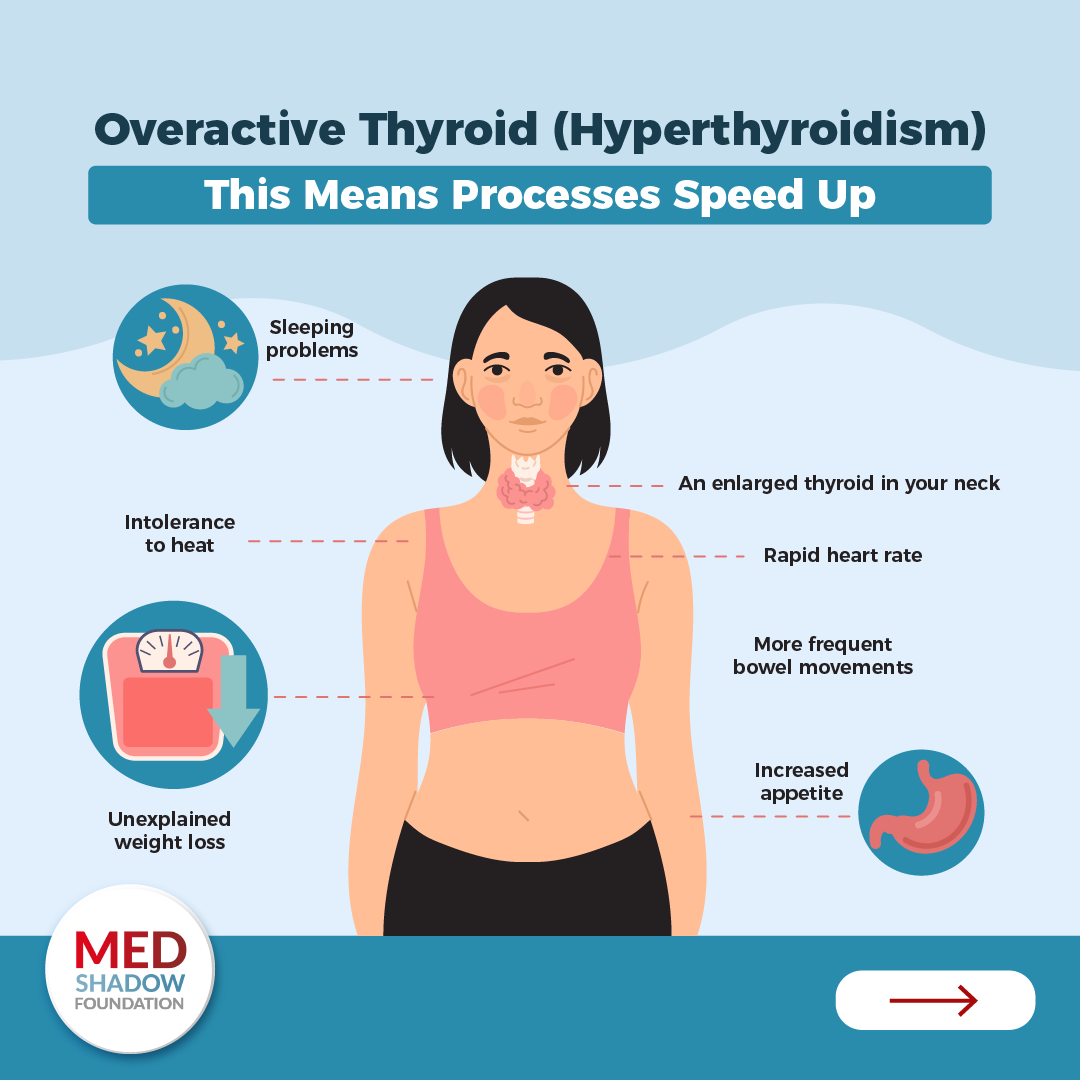
Medication, in the case of hypothyroidism, is likely a necessity. Food alone cannot cure or eliminate the condition. Nothing, at the time of this publication, has proven to completely cure the illness. As a result, once diagnosed with hypothyroidism, you will have it for the rest of your life.
5 Food Tips for Those with Hypothyroidism
While you cannot stop your condition, you can certainly improve your thyroid symptoms by following a few simple diet tricks.
“While medical management is an important piece of the puzzle, there are actually a lot of ways we can support the thyroid through diet to help improve its function, as well as associated symptoms,” says Acerra. “Here are five nutritional tips to support you.”
1. More Nutrient-Dense Foods; Less Processed Foods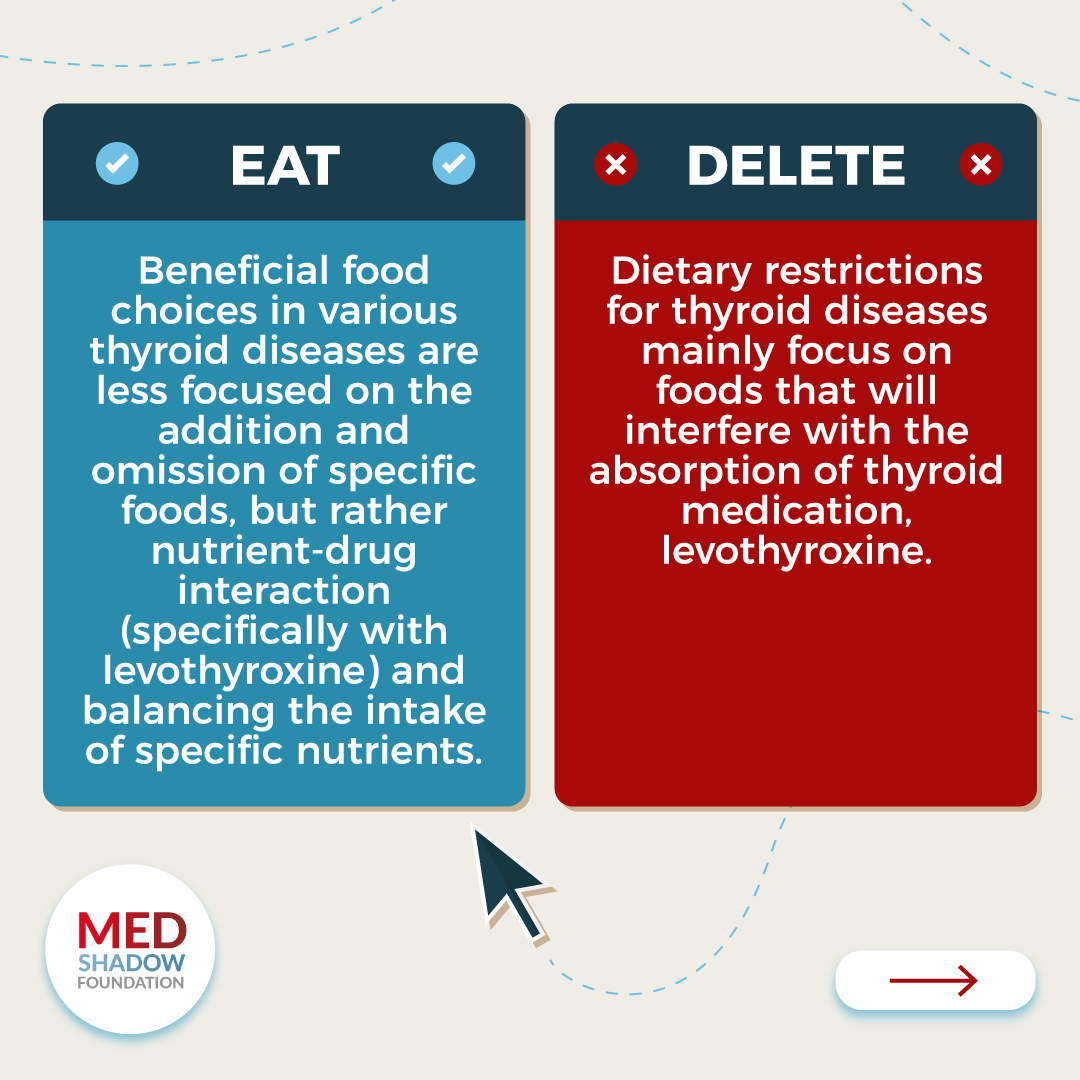
Acerra recommends adding as many nutrient-dense foods as you can. At the same time, she suggests reducing or eliminating any highly processed foods.Instead, Acerra says that hypothyroid patients can benefit most from fresh fruits and vegetables, whole grains, and healthy proteins such as fatty fish, nuts, and seeds.
2. Focus on Getting Enough Selenium and Zinc
Adding a few crucial minerals to your diet can go a long way at treating the symptoms brought on by hypothyroidism.
“These are two very crucial minerals [selenium and zinc] that play an important role in thyroid hormone metabolism,” Acerra says.
Some great sources of both selenium and zinc include Brazilian nuts, meat, dairy, poultry, lentils, nuts, and seeds.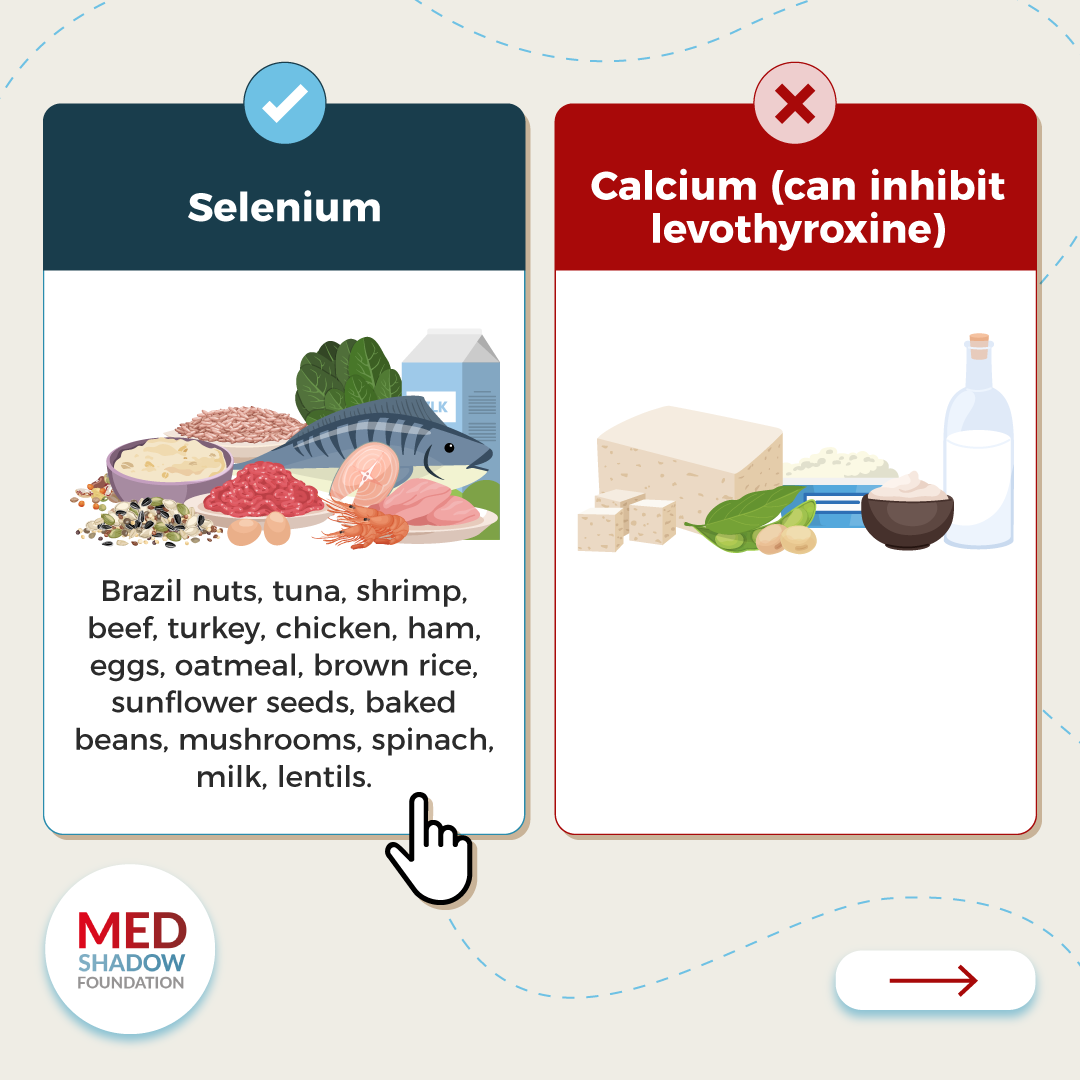
3. Get Adequate Amounts of Iodine
Another crucial mineral to add to the hypothyroid diet includes iodine. It is a macronutrient that plays a role in the production of thyroid hormones.
Sources of iodine include sea vegetables, such as kelp and nori; fish and shellfish, such as oysters and shrimp; as well as dairy and iodized salt.
4. Increase Your Fiber Intake
Those with hypothyroidism may have high levels of cholesterol.
“High cholesterol is actually common with hypothyroidism as a result of the body being unable to efficiently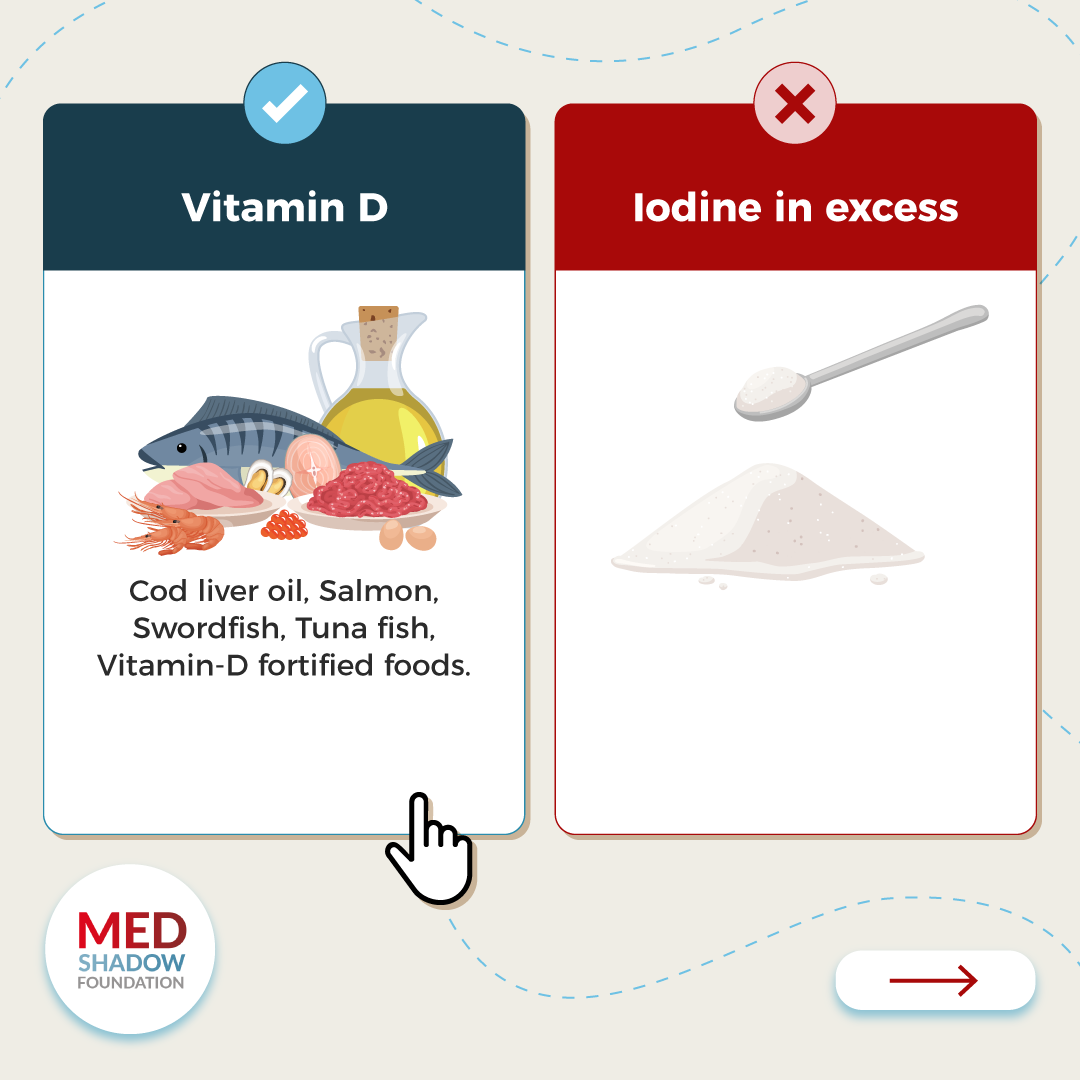 remove cholesterol from the blood,” said Acerra.
remove cholesterol from the blood,” said Acerra.
Additionally, those with hypothyroidism may also experience difficulty going to the bathroom.
“Constipation is also another really common symptom, and it occurs because of slowing gastric motility,” says Acerra.
Some sources of fiber include fruits, vegetables, barley, berries, whole grains, flax seed, and avocados.
5. Avoid Gluten-Containing Foods
Acerra says that those with hypothyroidism may also benefit from eliminating gluten from their daily diet.
“There is a link between hypothyroidism and gluten,” she says. “Eating gluten can cause the immune system to further attack the thyroid.”
“Avoid gluten, foods made with wheat, such as breads, pasta, crackers, and baked goods; as well as foods made from gluten grains, like rye and barley,” says Acerra.
Instead, Acerra recommends gluten-free, fiber-rich carbohydrates, such as starchy vegetables, sweet potatoes, parsnips, quinoa, peas, squash, brown rice, and legumes.
Food As Medicine for Hypothyroidism
While food is not a cure for your condition, monitoring your diet can go a long way to help those with hypothyroidism.
“If you are managing hypothyroidism, consider making just a few adjustments to your diet,” says Acerra. “Focus on making as many nutrient-dense, whole foods as possible. Get minerals in like selenium, zinc, and iodine, incorporate enough fiber, and limit or avoid your intake of gluten.”
Even adding a few simple food tips for hypothyroidism can go a long way in improving your daily life.
